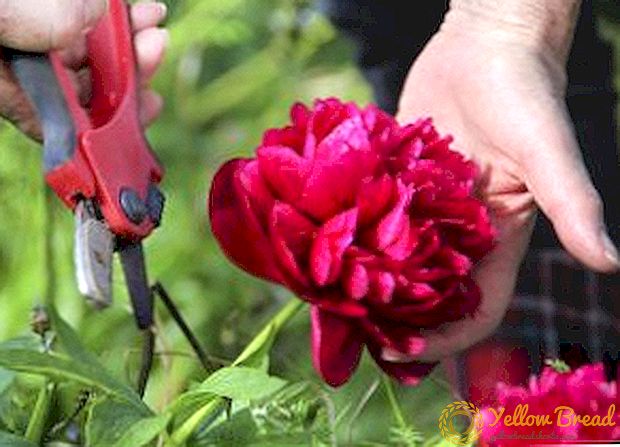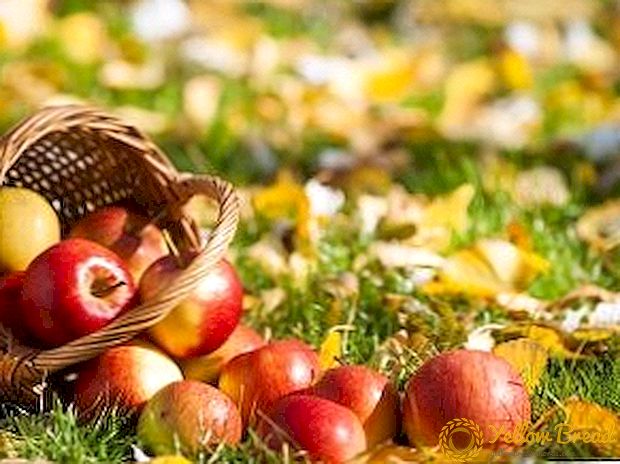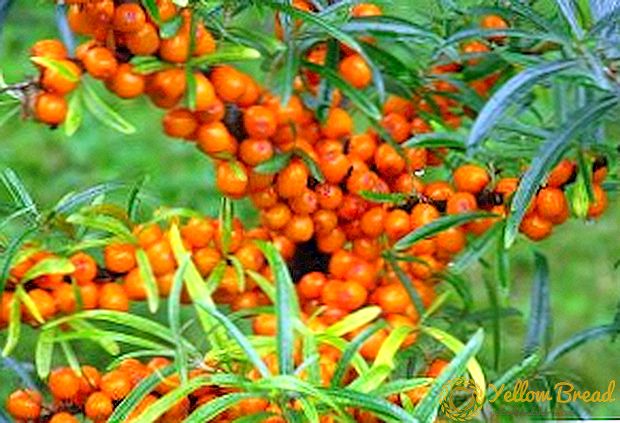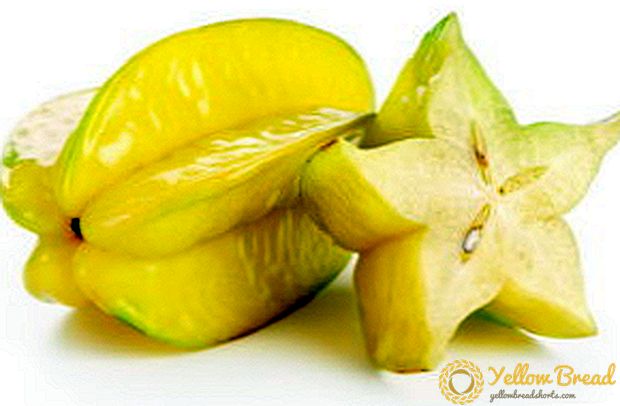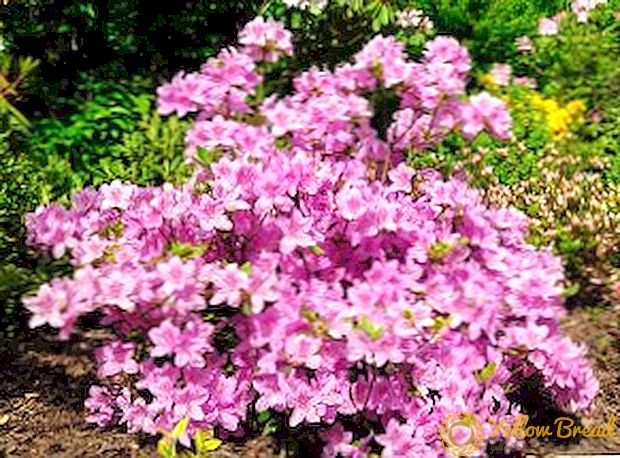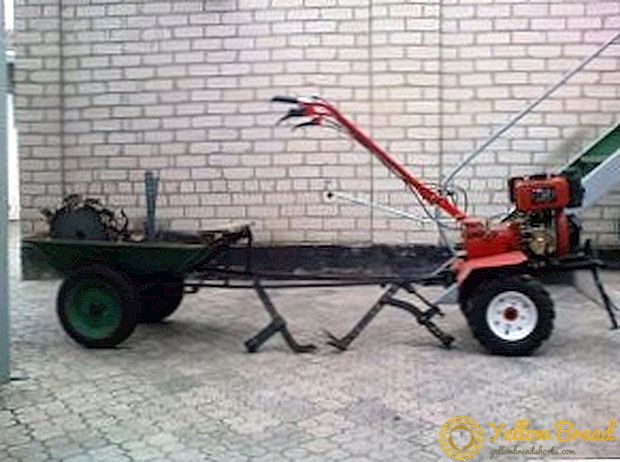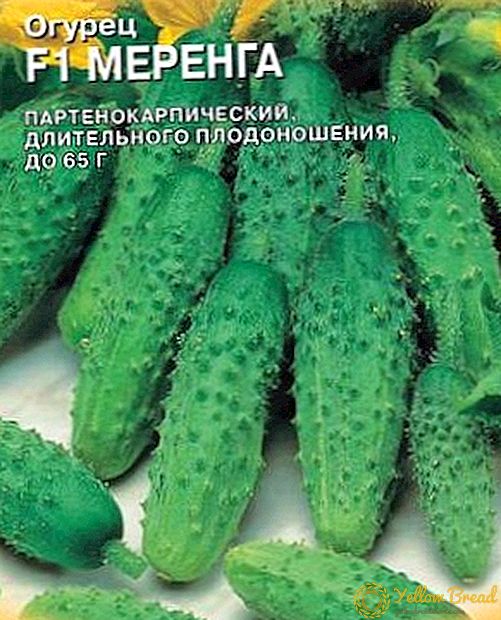 In order to get a good crop of cucumbers, you need to take a responsible approach to the choice of variety.
In order to get a good crop of cucumbers, you need to take a responsible approach to the choice of variety.
They are both pollinated by bees, and self-pollinated. These include cucumber variety "Merenga".
Let's take a closer look at all of its characteristics and growing technology.
- Description of the variety
- The advantages and disadvantages of the variety
- Features and differences from other varieties
- Cultivation
- Care
- Watering
- Fertilizer
- Reviews
Description of the variety
Cucumbers "Meringue F1" is a new hybrid self-pollinating early variety bred by Dutch breeders. It differs from other varieties of good yield and excellent taste.  The plant is tall and has bundle ovaries. It contains a lot of vitamins, minerals and salts, and also promotes excellent digestion. Also "Meringue F1" is a dietary product, since 100 g contains only 13 kcal.
The plant is tall and has bundle ovaries. It contains a lot of vitamins, minerals and salts, and also promotes excellent digestion. Also "Meringue F1" is a dietary product, since 100 g contains only 13 kcal.
The size of cucumbers is 10-14 cm and a diameter of 3-4 cm. The mass of one cucumber is 80-100 g. The fruit has a one-dimensional appearance with hilly whitish spikes. Color - dark green with thin skin and no voids inside.
Also, this variety is not bitter. Cucumbers can be used to make fresh salads, and they are also suitable for preservation.
The advantages and disadvantages of the variety
The variety "Meringue" has the following advantages:
- excellent taste;
- ripens in a relatively short period;
- big harvest;
- beautiful presentation;
- the duration of storage of the crop;
- cucumbers do not grow to huge sizes.
Among the disadvantages there is a poor resistance to certain diseases. 
Features and differences from other varieties
The peculiarity and the main difference from non-hybrid varieties is that the "Meringue F1" is a hybrid variety, which was derived by crossing two or more cucumber varieties.
Due to this, it is better adapted to fluctuations in temperature, boasts increased yields, attractive appearance and early maturity. But it is also worth knowing that in the second generation hybrids are fruitless. Therefore, it makes no sense to independently collect seeds.
Cultivation
The cultivation technology of cucumber "Merengue" is that they should be planted on well-prepared for planting soil.It should be loose, well absorb water and have a minimum level of acidity.  It is best to plant cucumbers in the places where onions, peppers, corn, cabbage were previously grown.
It is best to plant cucumbers in the places where onions, peppers, corn, cabbage were previously grown.
Before planting cucumbers, the soil should be fertilized. It is also necessary to wait until the soil temperature reaches the level of + 14-15 ° С and finally all night frosts are bypassed.
The optimum temperature for growing seedlings is + 22-27 ° C. It is planted in the tank, each sprout separately, and after about a month it is ready for planting in open ground.  If you want to plant seeds immediately in the ground, you need to make holes 2-3 cm deep, between the rows there should be no less than 50-60 cm.
If you want to plant seeds immediately in the ground, you need to make holes 2-3 cm deep, between the rows there should be no less than 50-60 cm.
When the seeds are planted, you can cover the top with a film. When the first sprouts grow, the ground around it should be loosened.
Fruit "Meringue" begins in 40-55 days, depending on what type of cultivation you choose.
Care
Cucumbers "Merengue F1" need, like all plants, in the standard care. Timely watering, weeding and loosening the soil will give their results.  The shoots must have enough light, and for this they need to be pinch off correctly. To the level of 60 cm, if there are flowers or shoots 2-5 cm long in the leaf axils, they should be removed. You also need to remove from the stems at a height of one meter on one leaf and fruit.
The shoots must have enough light, and for this they need to be pinch off correctly. To the level of 60 cm, if there are flowers or shoots 2-5 cm long in the leaf axils, they should be removed. You also need to remove from the stems at a height of one meter on one leaf and fruit.
Watering
Plants require moderate daily watering. But by the time when cucumbers begin to bloom and bear fruit, the amount of water consumed by the plant increases.
Fertilizer
Fertilizing "Merengue" is best organic fertilizer during the entire period of growth and flowering. 
Still used such compounds:
- "Crystal cucumber" - 1-2 g of product per 1 liter of water, used at the rate of 250 l per 1 ha.
- 400 g of ammonium nitrate mixed with 400 g of double superphosphate, 300 g of potassium sulfate, 100 g of iron, 20 g of boric acid and copper sulphate per 100 l of water.
- a solution of 100 l of water, 200 g of urea, 100 g of potassium sulfate, 150 g of superphosphate.
It is better to introduce all fertilizers with the help of a drip irrigation system.
Reviews
In most cases, the variety "Meringue F1" collects only positive reviews, as it has good taste, attractive appearance and great harvest.  There are dissatisfied with this variety, but this may be due to non-compliance with the rules of cultivation, or simply poor-quality seeds.
There are dissatisfied with this variety, but this may be due to non-compliance with the rules of cultivation, or simply poor-quality seeds.
As we have seen, the cultivation of the "Merengue F1" variety does not require any special wisdom, and the result is worth the effort that will have to be made to get an excellent harvest.

